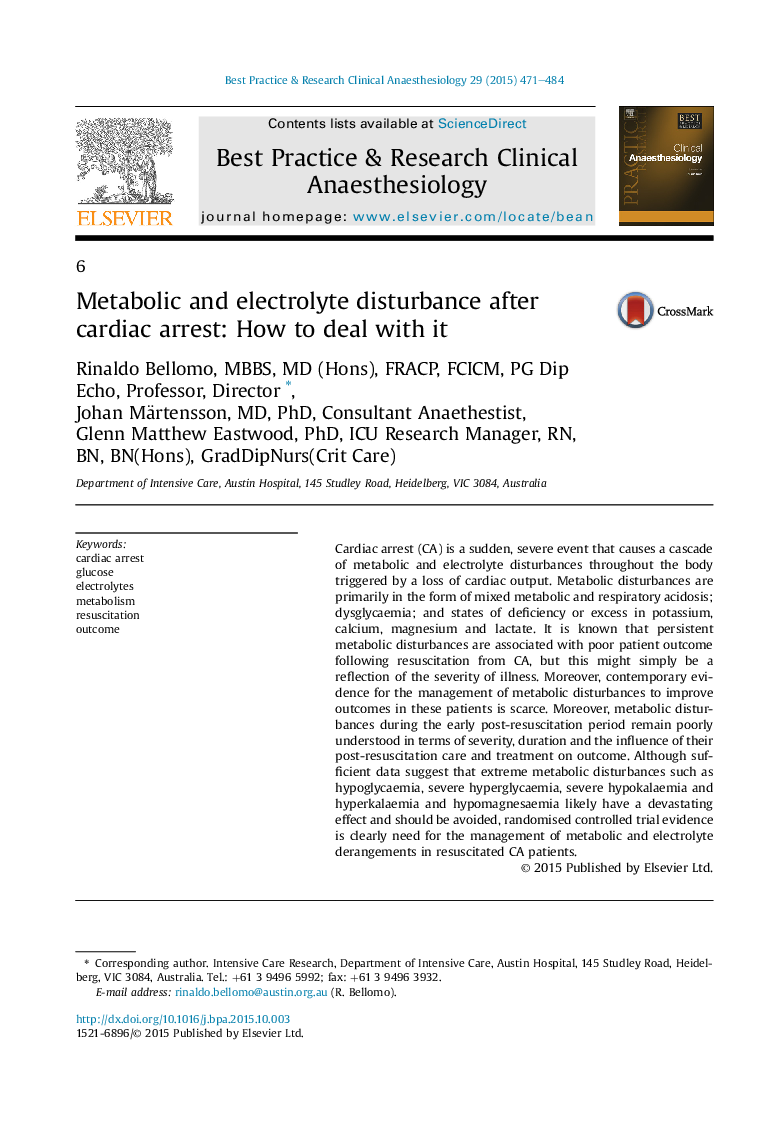| Article ID | Journal | Published Year | Pages | File Type |
|---|---|---|---|---|
| 2748345 | Best Practice & Research Clinical Anaesthesiology | 2015 | 14 Pages |
Cardiac arrest (CA) is a sudden, severe event that causes a cascade of metabolic and electrolyte disturbances throughout the body triggered by a loss of cardiac output. Metabolic disturbances are primarily in the form of mixed metabolic and respiratory acidosis; dysglycaemia; and states of deficiency or excess in potassium, calcium, magnesium and lactate. It is known that persistent metabolic disturbances are associated with poor patient outcome following resuscitation from CA, but this might simply be a reflection of the severity of illness. Moreover, contemporary evidence for the management of metabolic disturbances to improve outcomes in these patients is scarce. Moreover, metabolic disturbances during the early post-resuscitation period remain poorly understood in terms of severity, duration and the influence of their post-resuscitation care and treatment on outcome. Although sufficient data suggest that extreme metabolic disturbances such as hypoglycaemia, severe hyperglycaemia, severe hypokalaemia and hyperkalaemia and hypomagnesaemia likely have a devastating effect and should be avoided, randomised controlled trial evidence is clearly need for the management of metabolic and electrolyte derangements in resuscitated CA patients.
